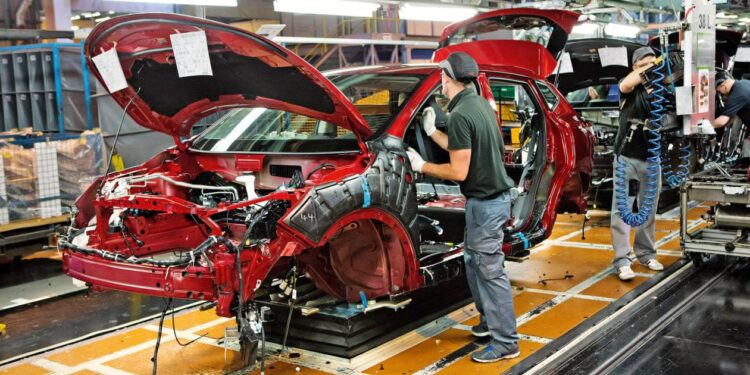Among the other firms that source chips from Nexperia either directly or indirectly are Nissan, Volvo, Honda, Mercedes and BMW. In light of the potential issues facing the automotive industry with chip shortages, a Nissan spokesperson said the company is “assessing the situation and will take appropriate measures as needed”.
The Volkswagen Group also relies on chips from Nexperia and said that it’s “in close contact with stakeholders in light of the current situation”, and that “short-term effects on production cannot be ruled out”.
As cars become more software-oriented, chip shortages become increasingly problematic. For example, the original Volkswagen Golf had around 30 semiconductors, while the current edition has around 8,000; the all-electric ID.7 has roughly 10,000 more.
Volkswagen Group and Rivian Technologies recently announced a partnership that will result in a “secure supply” of “high-tech semiconductors” – although this will be for cars produced in the future rather than any current models. In a statement, the VW Group said it is “currently examining alternative sourcing options in order to minimise possible effects on its supply chain”.
The previous semiconductor shortage, which started during the Covid pandemic, was exacerbated by geopolitical factors and affected most electronic goods – from PlayStations to washing machines. Chip shortages caused several car firms to halt production; factories such as MINI’s Oxford plant, Renault’s Flins factory in France and even General Motors’ facilities in North America all paused their production lines.
you know you can sell your car through Auto Express? We’ll help you get a great price and find a great deal on a new car, too.


